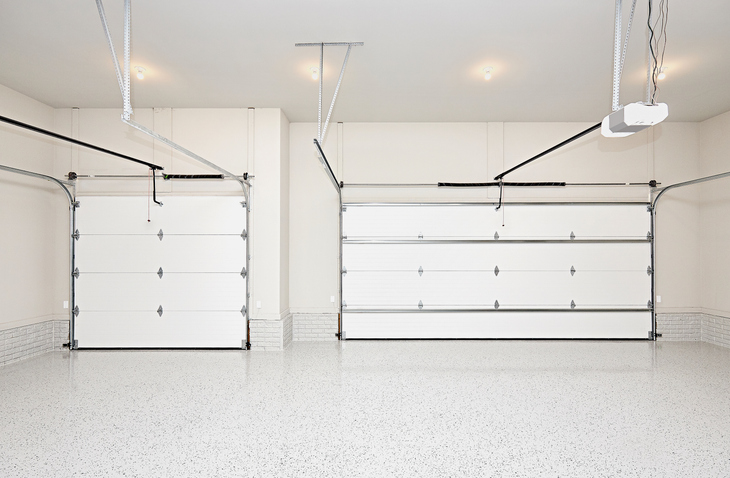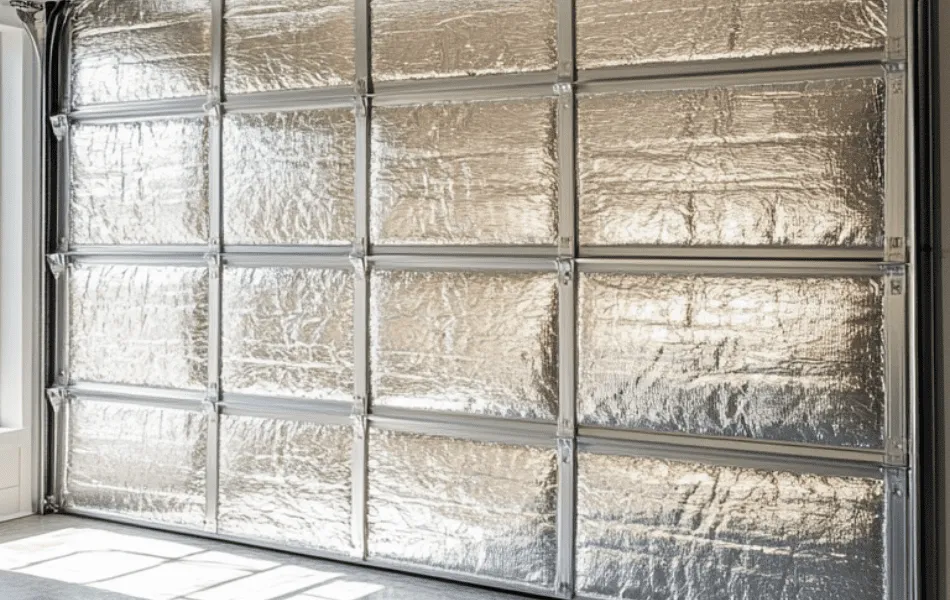Your garage door is an essential part of your home, providing convenient access to your garage and home. However, if youve noticed that your garage door squeaks when opening and closing, it can be both annoying and concerning. Understanding the reasons behind this issue is crucial for maintaining the longevity and functionality of your garage door.
A squeaky garage door can be caused by several factors, including improper lubrication, worn-out parts, misalignment, or lack of proper maintenance. In this article, we will delve into the common causes of garage door squeaks and provide you with practical solutions to address them. Lets get started!

Common Causes of Garage Door Squeaks
Poor Lubrication
One of the most common reasons for a squeaky garage door is poor or inadequate lubrication. The moving parts of your garage door, such as hinges, rollers, and springs, require regular lubrication to operate smoothly. Without proper lubrication, friction increases, leading to squeaks and other noises.
Worn Out Parts
Over time, the components of your garage door may wear out, causing them to produce squeaking sounds. Hinges, rollers, springs, and tracks are prone to wear and tear due to frequent use. When these parts become worn or damaged, they can create friction and noise during operation.
Misalignment
Another common cause of a squeaky garage door is misalignment. If the tracks or rollers are not aligned correctly, the door may not move smoothly along the tracks, resulting in squeaks. Misalignment can occur due to factors such as accidental bumps, improper installation, or shifting of the garage door structure.
Steps to Fix a Squeaky Garage Door
Inspect and Clean
The first step in addressing a squeaky garage door is to inspect and clean the various components. Start by thoroughly examining the hinges, rollers, springs, and tracks for any signs of dirt, debris, or damage. Use a clean cloth or brush to remove any accumulated dirt or debris.
Lubricate the Moving Parts
Proper lubrication is essential to reduce friction and eliminate squeaks. Apply a garage door lubricant or a silicone-based lubricant to the hinges, rollers, springs, and tracks. Be sure to follow the manufacturers instructions and avoid using excessive amounts of lubricant, as it can attract dirt and debris.
Tighten Loose Hardware
Loose hardware can contribute to the noise of your garage door. Check and tighten all screws, bolts, and nuts on the hinges, rollers, and tracks. Use a wrench or screwdriver to ensure that all connections are secure.
Replace Worn Out Parts
If you notice any worn-out or damaged parts during your inspection, it is crucial to replace them promptly. Ignoring worn-out components can lead to further damage and potentially compromise the safety of your garage door. Consult a professional or refer to your garage doors manual for guidance on replacing specific parts.
Regular Garage Door Maintenance
Schedule Routine Inspections
To prevent future issues with your garage door, it is important to schedule routine inspections. Regular inspections allow you to identify and address any potential problems before they worsen. Inspect the various components of your garage door at least once every six months.
Keep the Tracks Clean
Debris and dirt can accumulate in the tracks of your garage door, hindering its smooth operation and causing squeaks. Regularly clean the tracks using a clean cloth or vacuum cleaner to remove any dirt or debris. This simple maintenance task can significantly reduce friction and noise.
Test the Balance
Proper balance is crucial for the smooth operation of your garage door. Test the balance of your garage door by disconnecting the opener and manually opening and closing the door. If the door feels heavy or unbalanced, it may indicate an issue with the springs or other components. In such cases, it is advisable to seek professional assistance.
When to Seek Professional Help
Persistent Noise
If you have followed the steps mentioned above and the squeaking noise persists, it may be time to seek professional help. A professional garage door technician can accurately diagnose the issue and provide the necessary repairs or replacements.
Complex Repairs
Some garage door issues may require complex repairs or replacements that are best handled by professionals. Attempting to fix complex problems without the required expertise can lead to further damage or safety hazards. Contact a reputable garage door repair service for assistance with complex repairs.
Annual Maintenance
Routine maintenance by a professional is essential to keep your garage door in optimal condition. An annual maintenance service can help identify and address potential issues before they become major problems. It is a wise investment to ensure the longevity and reliability of your garage door.
For more inform ation on garage door maintenance, you can visithttps://garagedoorsrepairlasvegas.com/the-importance-of-regular-garage-door-maintenance.
ation on garage door maintenance, you can visithttps://garagedoorsrepairlasvegas.com/the-importance-of-regular-garage-door-maintenance.
FAQ
Why does my garage door make a loud popping noise?
A loud popping noise from your garage door can be caused by various factors, such as worn-out springs, loose hardware, or misalignment. It is advisable to inspect and tighten the hardware, lubricate moving parts, and check for any misalignment. If the noise persists, it is recommended to seek professional assistance.
Can I use WD-40 to lubricate my garage door?
While WD-40 is a popular lubricant, it is not recommended for garage doors. WD-40 is a solvent and can attract dirt and debris, which can further aggravate the squeaking issue. It is best to use a silicone-based lubricant or a garage door-specific lubricant for optimal results.
How often should I lubricate my garage door?
To keep your garage door operating smoothly and quietly, it is recommended to lubricate the moving parts at least every six months. Regular lubrication reduces friction and prolongs the lifespan of your garage door components.
For more information on addressing garage door issues, visit https://garagedoorsrepairlasvegas.com/common-garage-door-problems-and-how-to-fix-them.
Addressing and preventing garage door squeaks is essential for maintaining the functionality and longevity of your garage door. By following the steps outlined in this article, you can enjoy a quiet and smooth-operating garage door, enhancing your overall home experience. For more tips and expert advice, visit https://pubmed.ncbi.nlm.nih.gov/8885959.










